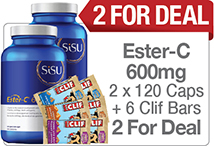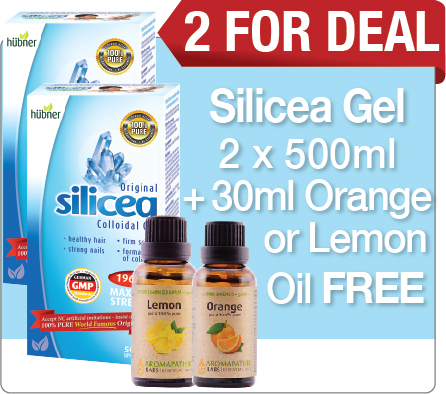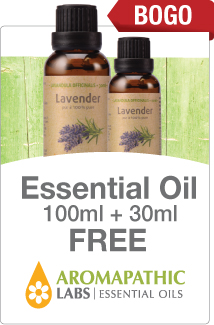Osteoarthritis
Updated Aug. 15th, 2019
Osteoarthritis (OA) is the most common type of arthritis, and it affects almost all of us as we age. OA usually has a gradual onset and tends to begin after the age of forty. The knees, hips, fingers and spine are the most susceptible joints. This type of arthritis will affect one or only a few joints at a time, and usually won’t symmetrically affect both sides of the body at the same time (although that is possible). This is a degenerative condition that tends to worsen over time, especially with increased use of the affected joints.
How does it happen?
Most commonly, bouts of OA result from an injury to the joint, which causes some local damage that the body fails to properly repair. Unlike rheumatoid arthritis, the joint deterioration in OA is due to faulty or deficient repair of bone and cartilage in the joint. This can be due to lack of the essential nutrients required for repair, or due to faulty sensory and repair mechanisms in the body. For more information on joint function and the structure of the joint capsule, please see our Joint Health article.
Signs and Symptoms
The largest indicator of Osteoarthritis is a motion induced pain in the joints and stiffness that is worse after a period of inactivity such as when resting or upon waking. At first, there will likely not be any inflammation in the joint however as the condition continues the joint will become damaged and begin to swell and change shape. Surrounding muscles may spasm and many people report a grinding feeling in the joint upon moving. Eventually, the affected joint will emanate constant pain even when it is immobile. Most occurrences of osteoarthritis are not symmetrical and only affected one side, for example, the left hand and not the right. One small joint in a finger can be effected without causing pain in the other joints. When the arthritis is more widespread and symmetrical, it is more likely an inflammatory condition called: Rheumatoid Arthritis (RA).
Conventional Treatment
Medical doctors will often prescribe non-steroidal anti-inflammatory drugs (NSAIDs) to help manage the pain associated with OA. Side effects of some of these drugs include: gastrointestinal bleeding, stomach ulcers, heart attacks and liver problems. Some of these medications, especially the NSAID group can actually accelerate the degradation of joint tissue and worsen arthritis over time. More potent drugs called corticosteroids are sometimes prescribed for arthritis. These will be medications like cortisone and prednisone. While they are effective at relieving discomfort in the short term, these drugs can cause loss of bone mass in the long-term. To help reduce this effect, many doctors will inject cortisone directly into the joint space to localize the therapy. Another common injection therapy involves directly injecting viscous fluid into the joint capsule to help bolster the fluid cushion (synovial fluid) between the bones. This is a temporary fix that reduces friction while the fluid lasts, before the body can reabsorb it back into the circulation.
Diet
The standard North American diet is deficient in the minerals necessary for proper joint repair; therefore it is not surprising that osteoarthritis is a common concern in today’s society. Eating a diet rich in fruits and vegetables can naturally provide the nutrients that our bodies need to rebuild our joints. Drinking plenty of water (at least 8 cups a day) can help to ensure that adequate joint fluid is always present, which prevents the bone from directly contacting bone in the joint. In today’s society, most people’s diets also cause their tissues to be acidic. In order to buffer the acid in the tissues, essential minerals are stripped from the body, including those in the joints. An Alkaline Diet will help to prevent worsening of symptoms and maintain a proper mineral balance in the joints. See the Acid/Alkali Balance article for more information.
Topical Treatments for OA
Topically, juniper or St. John’s Wort oil can be rubbed into the joints to help reduce pain and relieve stiffness. Topical application of MSM has also been shown to help relieve arthritis pain. Joint creams and tablets with homeopathic remedies like rhus-t, arnica, and sulphur may also be helpful. Hydrotherapy with hot compresses or baths can also provide symptomatic relief. Alternating hot and cold treatments can help to bring down swelling and clear away some of the toxic build-ups. Applying ice to the affected joints after strenuous activity can also help to prevent further joint damage by reducing inflammation.
Supplements for Reducing Pain and Inflammation
There are a number of supplements that can help to reduce inflammation in the joint and provide nutrients to allow the body to repair the previous damage. Fish Oil helps to reduce inflammation and provides the essential fatty acids required to keep the joint tissues flexible and strong. Herbs such as: Curcumin, Bromelain, and Boswellia can all help to reduce the underlying inflammation caused by joint degradation. Devil’s Claw is an herb that is particularly successful at reducing inflammation in degenerative conditions as well.
Supplements for Improving Joint Function
Glucosamine and Chondroitin work well together to help provide the body with the building blocks required for joint repair. Vitamin C, and Collagen can also provide essential building blocks for the body to repair the tissues. Hyaluronic Acid (HA) can also provide elasticity and flexibility to the joint cartilage, further helping to reduce joint degradation.
There are a number of combination products that provide several of the above recommendations into a single product to help make supplementing easy.























The article provides a useful overview of osteoarthritis and functions of supplements that could be of use. I've heard of the different supplements but didn't really understand what different functions they offer, just knew they are all beneficial to joint health. The table following the article is also an excellent reference. If the use of essential oils could be included as well, that would be awesome! I've started to try some oil blends to alleviate the pain and would love to learn more on that. Thank you National Nutrition for posting this information.
I really enjoyed the video and article regarding osteoarthritis and found it to be very informative. I have had osteoarthritis for many years and was prescribed ibuprofen for the stiffness and pain but ended up with gastrointestinal bleeding. Like many prescription medications, there are pros and cons. In other words, your next solution is your next problem; although the ibuprofen took away the pain, it caused other problems in my body.
I am so thankful to learn that there are a number of supplements that can help alleviate my pain without causing other problems. I am looking forward to trying them out, one at a time, to see which one works for me. Thank you for your wonderful website and sharing your wealth of knowledge.
I read your Osteoarthritis article with great interest. I have suffered from osteoarthritis for well over 20 years now. Upon diagnosis, I began taking a combination of glucosamine, chondroitin, and/or MSM on a daily basis. As well, I began taking a calcium/magnesium supplement. Over time, I have added anti-inflammatory supplements such as omega-3, SierraSil®, curcumin, green-lipped muscles, and cinnamon. So far, a combination of these supplements has managed the painful throbbing aspect of my osteoarthritis. However, as is the nature of osteoarthritis, my stiffness and pain have gotten worse over the years, and my fingers are now riddled with Heberden's nodes! I found your article to be comprehensive, informative, and easy to understand. Thanks to your article, I have been given a few more tools to try. Namely, devil’s claw, collagen, Boswellia, bromelain, putting more emphasis on an alkaline diet, and drinking more water!! Thank you for sharing especially useful information on the topic.
Hello Cheryl,
Thank you for sharing your experience, curcumin, collagen, silica and glucosamine and MSM are all great staples for arthritis and joint pain. Happy our article has been able to help you in supporting your health & managing pain.
If you'd like to learn more about each supplement specifically, check out our supplement articles too:
https://www.nationalnutrition.ca/articles/supplements/
Have a healthy day!
Thank you for the list of supplements! I would also add to it D3 + K2, as well as Collagen of type 1, 2 and 3. It really works for me. Just have patience and persistence. It took time before I was able to see any results. First progress was noticed only in 5-6 month, and then much better in a year. Unfortunately, osteoarthritis is not something that can be cured fast. Thank you National Nutrition for your helpful website, competitive prices and bonus programs!
Hello Alex,
Thank you for your helpful comment. Indeed, patience is key when supporting your health with natural supplements or medication, everything takes time to feel the benefits. We're glad you stuck to it so you could reap the benefits. Thank you for your kind comment, we love having you as part of the NN family. If you'd like to learn more about the different types of collagen, we have articles on that too:
https://www.nationalnutrition.ca/articles/supplements/collagen-1-and-3/
https://www.nationalnutrition.ca/articles/supplements/collagen-2/
I've been taking collagen powder and turmeric daily for a few years now and I have zero joint pains or aches. While I exercise regularly, I know that collagen and turmeric are helping to a great extent.
Hello, Marni,
Thank you for sharing, collagen is great for joint health and turmeric helps reduce inflammation. We are glad it's working well for you. Learn more with our new articles on these supplements: https://www.nationalnutrition.ca/articles/research/collagen-for-joints/
Stay healthy & well!